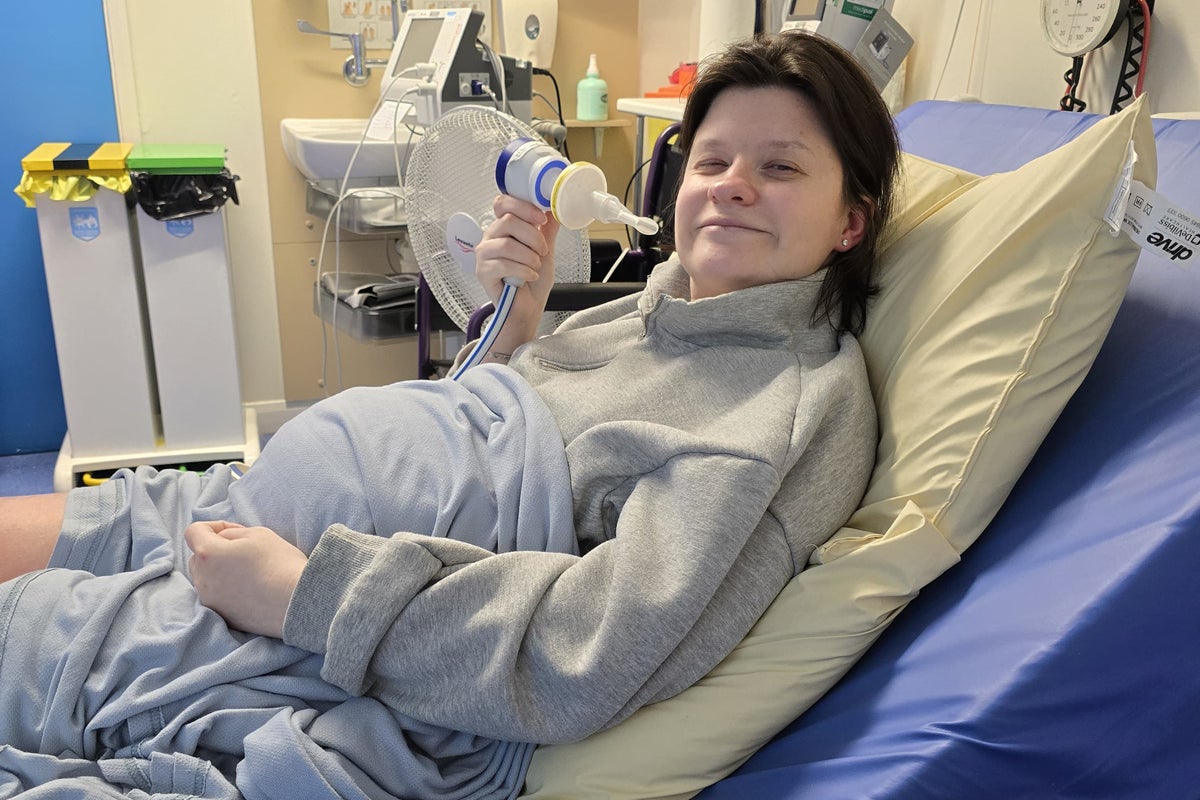Mother's Rare Condition Dismissed as Pregnancy Symptom

A Mother's Struggle with a Rare Condition
Rachel Bradford, a young mother from Torbay, Devon, is living through an unimaginable ordeal. She describes feeling like she is "burning alive" every day due to a rare condition that has taken away everything from her, including the ability to play with her one-year-old son, Michael.
The situation began in March 2024 when Rachel, who was 24 weeks pregnant, noticed an "extraordinarily itchy" rash breaking out across her skin, covering her body in red blotches. Initially, she visited doctors, but they told her it was likely a pregnancy-related symptom. However, just two weeks later, her condition worsened dramatically.
Her skin turned "burning" red and "blistering" in some areas, while other parts turned black, resembling the complexion of "a dead person." Grappling with excruciating pain, uncontrollable spasms, and loss of feeling, Rachel had to step back from her job as a support worker. She called NHS 111, and was advised to seek help at Royal Devon and Exeter Hospital. However, the hospital staff told them it was nothing to worry about and sent them away. They were still being told it could go away after pregnancy, which left Rachel feeling unheard and unsupported.
The pain was so severe that all she could do was pray it would stop. "I felt no one was listening to me, no one was taking me seriously," she said. Unable to open her legs due to lack of mobility and swollen limbs, Rachel gave birth to her son via an emergency C-section at Torbay Hospital in May 2024. However, her symptoms persisted, leaving her body "constantly on fire" – a torment that has left her feeling suicidal and without hope for the future.
Rachel was finally diagnosed with erythromelalgia, a rare condition that causes burning pain, redness, and hot skin, in February this year. "It feels like I’m burning alive," she said. "This condition has taken everything away from me—pregnancy and motherhood, my job, my mobility, my independence—I can’t even play with my son."
Her husband, Jack, described the constant suffering Rachel endures. "There’s always a part of Rachel’s body which is constantly on fire and it doesn’t go away. She can’t escape it, from the moment she opens her eyes, it’s the first thing she feels."
The couple submitted a complaint to the maternity ward in Torbay Hospital, and the hospital apologized for Rachel’s negative experience. Erythromelalgia is often difficult to diagnose, and its causes are not always clear. It can sometimes be linked to another condition or a faulty gene inherited from a parent, according to the NHS. Treatment can be challenging, requiring patients to try different combinations of treatments to find what works.
Rachel suffers from multiple symptoms alongside erythromelalgia, such as uncontrollable spasms, brain fog, joint pain, and loss of feeling in her extremities. The couple has visited Royal Devon and Exeter Hospital for her care and pain management, but they claim they were told by staff to "put some socks on" and that they "can’t do anything else" to help Rachel. This has led to frustration and disappointment, with no hope in sight.
Rachel’s mental health has been greatly affected by her condition, as she struggles with her mobility, independence, and motherhood. Her husband explained that even simple interactions with their son cause her pain. "If Michael sits on Rachel’s lap for even just five minutes, it causes her thighs to flare up," he said. "Rachel is an amazing mum, and to see her completely limited by something outside of her control, it’s absolutely horrendous."
Despite the challenges, Rachel is trying new medications in the hopes of relief. The couple has also launched a GoFundMe page, raising over £2,000 so far, to access scrambler therapy in Italy—a non-invasive treatment for chronic pain.
Royal Devon Hospital expressed regret over Rachel’s experience and encouraged her to raise her concerns through their complaints process. Torbay and South Devon NHS Foundation Trust also apologized for the negative experience and emphasized their commitment to improving care for patients.
When life becomes too difficult, support is available. Samaritans are here—day or night, 365 days a year. You can call them for free on 116 123, email them at jo@samaritans.org, or visit samaritans.org to find your nearest branch.

Post a Comment for "Mother's Rare Condition Dismissed as Pregnancy Symptom"